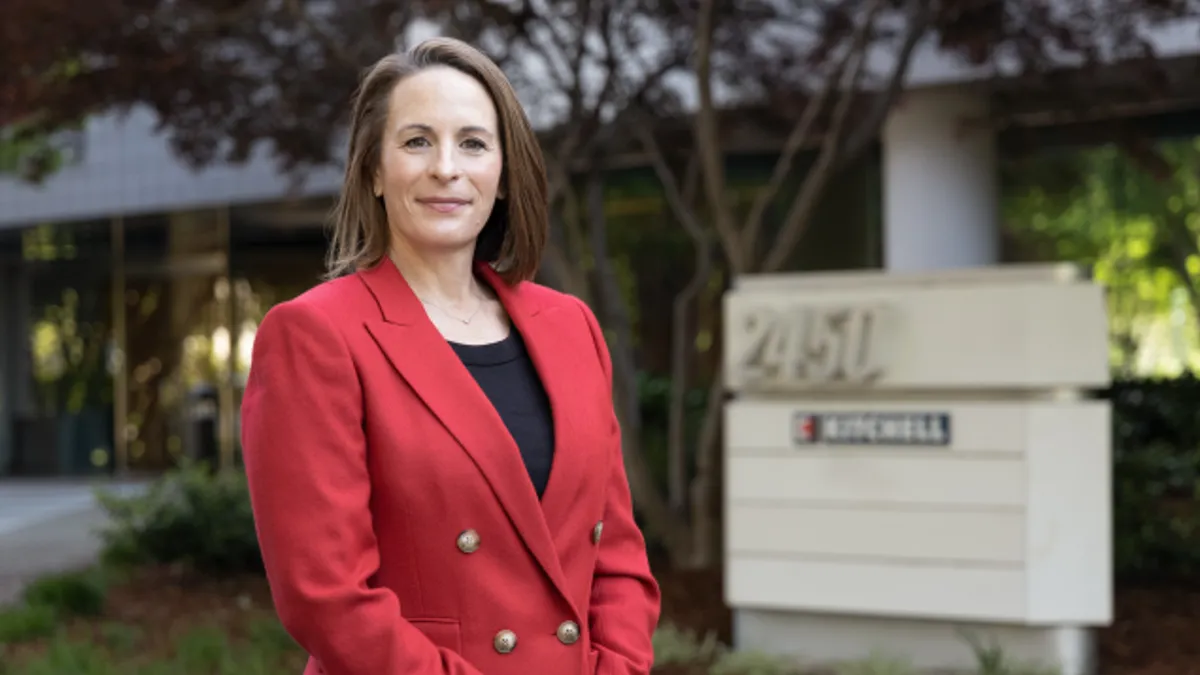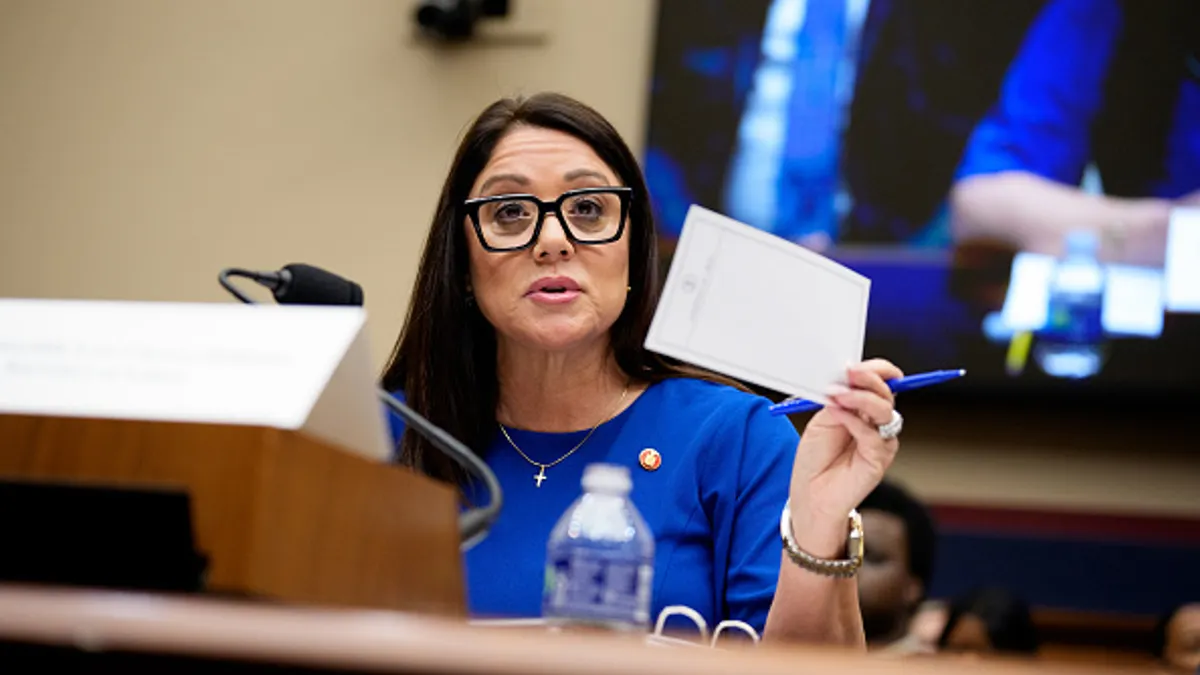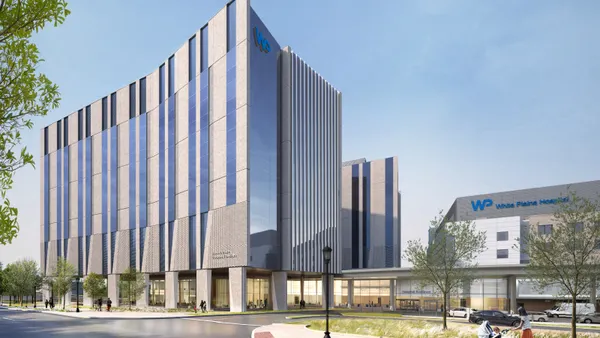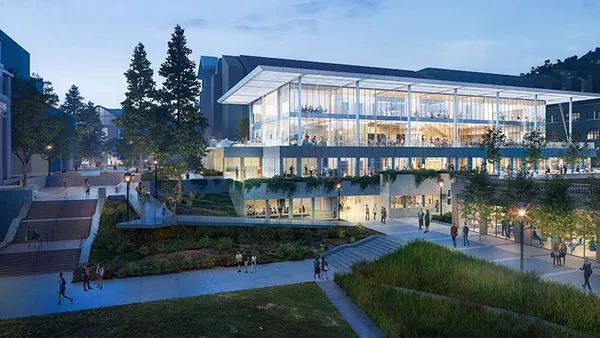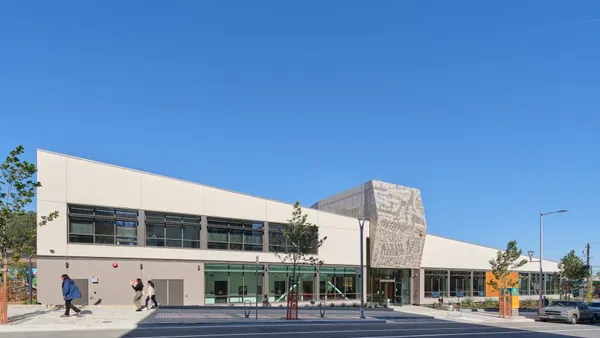Wendy Cohen recently took over as CEO of Kitchell, one of the largest employee-owned building companies in the Southwest United States.
She is the fifth CEO in Kitchell’s 73-year history and the first woman in the role, according to a press release shared with Construction Dive. The company has main offices in Phoenix and Sacramento, California.
During her nearly 30 years in the building industry, Cohen has worked as a general contractor, construction manager, consultant and owner. She joined Kitchell in 2013 and has led large projects for clients such as UC San Diego, MiraCosta Community College District and Los Angeles County’s Department of Public Works.
With primary offices in Arizona, California and Texas, Kitchell’s footprint spans 14 states in sectors such as healthcare, hospitality, multifamily housing and education. Its operating companies are Kitchell Contractors, Kitchell Development Co., Kitchell CEM and American Refrigeration Supplies.
“Having the perspective of the last three decades helps me appreciate how rapidly the industry has changed in just the past few years,” Cohen told Construction Dive. “I am excited about developing a strategy and culture — alongside all our employee-owners — that allows us to adapt, innovate and lead change in all our markets and services.”
Here, Cohen talks with Construction Dive about current challenges for the industry and future goals.
This article was edited for brevity and clarity.
CONSTRUCTION DIVE: How did you get your start in construction?
WENDY COHEN: I’ve always been fascinated with the way things are built, and originally wanted to go into architecture. When I was young, my dad was a laborer for an underground construction company and worked his way up to an estimator. When I was 7, he left his job and started his own underground utility construction company out of our house, and he and my mom operated that for 25 years.
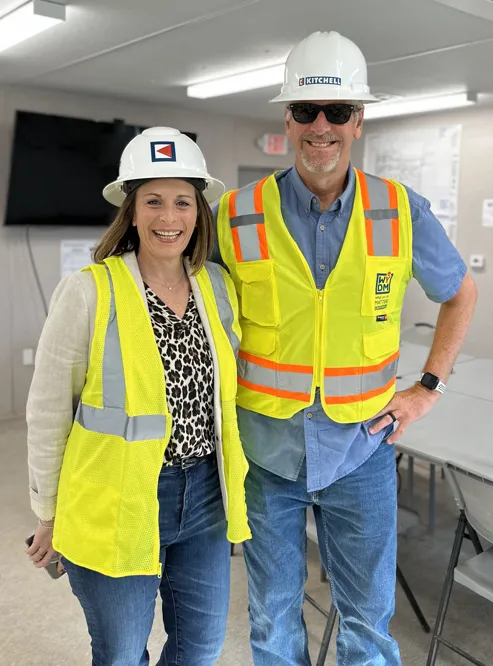
Fortunately, I realized in high school that architecture wasn’t the best fit for me, but I still gravitated toward building. My first job in the construction industry was working as a project secretary — a term not used anymore — at a project in San Luis Obispo, California. It was a summer job, and at the end of it, my boss called and asked if I knew anyone that would be a good fit for a project engineer position. And I asked him – how about me?
What are your goals as you start your new position?
Kitchell has an incredibly rich history of innovation and diversity. I look forward to building on this legacy by working closely with our 1,000-plus employee-owners to develop a strategy and to build a culture that sets the stage for success for the next quarter-century and beyond.
We have an opportunity to collaborate and innovate across our four operating companies leveraging our talents and continuing to invest in the future. As a company approaching our 75th anniversary in 2025, it is more important than ever to honor our history while acknowledging the rapid changes in our industry.
My goal is to position Kitchell at the forefront of the industry by leading innovation and implementing change that will guide Kitchell and the industry into the future.
What are some of the top challenges you’re seeing in your markets?
What we’re experiencing at Kitchell is not unique — latent issues related to supply chain, labor availability, rising construction costs — but the way we manage those issues is where we distinguish ourselves. Each of these challenges creates an opportunity to innovate and become creative problem solvers.
As a diverse corporation, we have the unique opportunity to leverage across our four different companies tapping into the expertise of our general contracting company, project and construction management company, our development company and mechanical supply company.
How has the construction industry changed since you started your career?
The construction industry has certainly evolved over the last few decades with the advancement of technology, building materials, means and methods. One thing that hasn’t changed is the importance of talented people in our industry.
From the laborer to the skilled craftsperson to the superintendent to the project manager and architect, this industry is built by creative and passionate people. This one thing is what motivates me every day; doing the best for our people that build with their hands and their minds.



